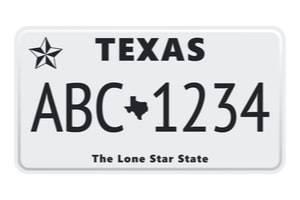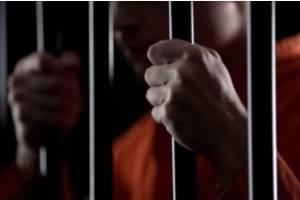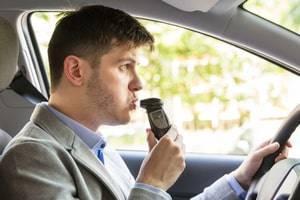Recent Blog Posts
Alcohol Sellers Can Be Culpable in DWI Cases
 When a person is accused of driving while intoxicated, they are considered responsible for becoming intoxicated and choosing to drive. A first-time DWI conviction in Texas is a Class B misdemeanor, punishable by as long as 180 days in jail, a fine of $2,000, and a driver’s license suspension. However, responsibility for a DWI sometimes extends to the person who served the alcohol to the driver. It is a crime in Texas to sell alcohol to someone who is intoxicated, and a conviction can lead to serious consequences – particularly if the intoxicated person hurts someone during their DWI incident.
When a person is accused of driving while intoxicated, they are considered responsible for becoming intoxicated and choosing to drive. A first-time DWI conviction in Texas is a Class B misdemeanor, punishable by as long as 180 days in jail, a fine of $2,000, and a driver’s license suspension. However, responsibility for a DWI sometimes extends to the person who served the alcohol to the driver. It is a crime in Texas to sell alcohol to someone who is intoxicated, and a conviction can lead to serious consequences – particularly if the intoxicated person hurts someone during their DWI incident.
Bartender Charged in Connection with DWI Case
A bartender in Austin, Texas, was recently arrested for allegedly serving alcohol to an intoxicated man who was later involved in a fatal accident. The driver was charged with intoxication manslaughter and failure to stop and render aid. The driver allegedly hit a man pushing a shopping cart and fled the scene on foot before police caught him. An investigation by the Texas Alcoholic Beverage Commission determined that a bartender at an area restaurant had served alcohol to the driver when he was noticeably intoxicated. After arresting the bartender, the Commission stated that alcohol retailers and their employees must be accountable for monitoring the physical condition of their customers and potentially preventing a DWI incident.
How a Background Check on Your Texas License Plate Can Lead to a DWI Arrest
 An arrest for driving while intoxicated in Texas starts with the police officer having reasonable suspicion that the driver has broken the law, either while monitoring passing traffic or when responding to an accident. An officer is legally allowed to stop a driver if the driver has committed a traffic violation or is driving in a manner that suggests impairment. The officer may also conduct a background check on drivers by entering their license plate numbers into a database, which may indicate that the driver has an outstanding warrant or the vehicle is not confirmed to have liability insurance. During the stop, the officer can arrest the driver for DWI if there is probable cause to believe that the driver is intoxicated.
An arrest for driving while intoxicated in Texas starts with the police officer having reasonable suspicion that the driver has broken the law, either while monitoring passing traffic or when responding to an accident. An officer is legally allowed to stop a driver if the driver has committed a traffic violation or is driving in a manner that suggests impairment. The officer may also conduct a background check on drivers by entering their license plate numbers into a database, which may indicate that the driver has an outstanding warrant or the vehicle is not confirmed to have liability insurance. During the stop, the officer can arrest the driver for DWI if there is probable cause to believe that the driver is intoxicated.
Precedent in Texas
A 2017 Texas appellate court ruling confirmed that a police officer is legally allowed to stop a vehicle that a database flagged for not having insurance, even if the database was inaccurate. In 2015, an officer was entering plate numbers of passing vehicles when one was listed for “unconfirmed insurance,” which could mean that the insurance on the vehicle had lapsed. He stopped the vehicle to check for proof of insurance and eventually arrested the driver on suspicion of DWI.
How CBD Products Can Lead to a False DWI Charge in Texas
 Texas passed a law in 2019 that legalized the sale and use of hemp and its derivative products. The law, in turn, has grown the market for cannabidiol (CBD) products in the state. You may have noticed signs and advertisements for products infused with CBD, such as oils, edibles, and lotions. CBD should not be confused with tetrahydrocannabinol (THC), an active ingredient in marijuana, which is still illegal in Texas except for medical use in specific cases. It is legal to drive after having consumed CBD products because it should not impair your driving ability. However, some drug testing labs in Texas admit that their equipment is unable to tell the difference between CBD and THC, which could lead to someone being wrongly charged with driving while intoxicated by marijuana.
Texas passed a law in 2019 that legalized the sale and use of hemp and its derivative products. The law, in turn, has grown the market for cannabidiol (CBD) products in the state. You may have noticed signs and advertisements for products infused with CBD, such as oils, edibles, and lotions. CBD should not be confused with tetrahydrocannabinol (THC), an active ingredient in marijuana, which is still illegal in Texas except for medical use in specific cases. It is legal to drive after having consumed CBD products because it should not impair your driving ability. However, some drug testing labs in Texas admit that their equipment is unable to tell the difference between CBD and THC, which could lead to someone being wrongly charged with driving while intoxicated by marijuana.
Difference Between CBD and THC
People sometimes confuse hemp with marijuana because they both come from the cannabis plant. As the legalization of hemp shows, federal and local governments now recognize that hemp does not pose the same dangers as marijuana. One of the primary differences between hemp and marijuana is the amount of CBD and THC it has. Hemp, by legal definition, has less than 0.03 percent THC, which is not enough to impair a normal person. CBD has the same molecular structure as THC but does not have the psychoactive component that would impair someone.
Multiple DWI Convictions Can Add Up to Longer Prison Sentences
 A Texas man was recently sentenced to 65 years in prison after his ninth conviction for driving while intoxicated. The defendant was charged following a single-car accident, during which he allegedly had a 0.263 blood alcohol concentration. While this may seem like severe punishment for an incident in which no one was harmed, it is not unusual in Texas. Courts have issued life sentences to offenders who had a history of repeated DWI convictions. Judges usually rationalize the harsh sentences by describing the defendant as a habitual offender who has shown that they will not change their behavior and will continue to be a danger to others. Being convicted for multiple DWI offenses not only enables courts to issue more severe punishments but may also motivate a judge to utilize the full extent of those punishments.
A Texas man was recently sentenced to 65 years in prison after his ninth conviction for driving while intoxicated. The defendant was charged following a single-car accident, during which he allegedly had a 0.263 blood alcohol concentration. While this may seem like severe punishment for an incident in which no one was harmed, it is not unusual in Texas. Courts have issued life sentences to offenders who had a history of repeated DWI convictions. Judges usually rationalize the harsh sentences by describing the defendant as a habitual offender who has shown that they will not change their behavior and will continue to be a danger to others. Being convicted for multiple DWI offenses not only enables courts to issue more severe punishments but may also motivate a judge to utilize the full extent of those punishments.
Consequences of Multiple Convictions
One way that a DWI conviction can be a felony in Texas is if it is your third DWI conviction. According to Texas law:
How to Dress and Behave at Your DWI Trial
 Your trial for driving while intoxicated is in some ways a judgment of your character. The court will consider who seems more credible when weighing your testimony against the testimony of the arresting police officer and other witnesses. Do you seem like an honest and trustworthy person? How you look and behave will help answer that question. Proper appearance and behavior will not guarantee that you will win your DWI case, but giving a bad impression could create a negative bias that is difficult for you to overcome. Here are four keys to making a good impression in your DWI trial:
Your trial for driving while intoxicated is in some ways a judgment of your character. The court will consider who seems more credible when weighing your testimony against the testimony of the arresting police officer and other witnesses. Do you seem like an honest and trustworthy person? How you look and behave will help answer that question. Proper appearance and behavior will not guarantee that you will win your DWI case, but giving a bad impression could create a negative bias that is difficult for you to overcome. Here are four keys to making a good impression in your DWI trial:
- Proper Appearance: You are expected to dress conservatively and look as clean-cut as possible when appearing in court. For men, you should wear a business suit or at least a button-down shirt with a tie and dress pants. For women, a skirt or slacks will work, as long as they look professional and are not revealing. You should remove excessive piercings, keep your hair-style tame, and cover up your tattoos if possible.
Will You Lose Your Job Because of Your DWI?
 There are many ways that being convicted of or even just charged with driving while intoxicated can affect your life. One of the most pressing questions that people ask is “Will I lose my job?” That is an issue that your employer, and not a criminal court, will decide. Most employers in Texas hire workers “at will,” meaning that your employer can terminate your employment at any time and without needing to give a cause – as long as the decision is not based on discriminating against protected traits such as race or gender. For many employers, a DWI conviction or arrest may be enough of a reason to fire an employee.
There are many ways that being convicted of or even just charged with driving while intoxicated can affect your life. One of the most pressing questions that people ask is “Will I lose my job?” That is an issue that your employer, and not a criminal court, will decide. Most employers in Texas hire workers “at will,” meaning that your employer can terminate your employment at any time and without needing to give a cause – as long as the decision is not based on discriminating against protected traits such as race or gender. For many employers, a DWI conviction or arrest may be enough of a reason to fire an employee.
Incarceration
Your job will likely be in peril if you are sentenced to jail or prison as part of your DWI conviction. The punishment for a first-time DWI conviction can include three to 180 days in prison and may include more time if there are aggravating factors such as a blood alcohol concentration of 0.15 or over. Your employer does not have to preserve your job while you are incarcerated. Even if your employment contract protects your job, it may have a clause that voids the contract if you are convicted of a crime.
Do Ignition Interlock Devices Cause Distracted Driving Accidents?
 People across the U.S. who have been convicted of driving while intoxicated are using breath alcohol ignition interlock devices (BAIID) in order to retain their driving privileges. A BAIID is a Breathalyzer connected to a vehicle that requires the user to provide a breath sample to prove that they have not been drinking. In Texas, first-time DWI offenders can opt to use a BAIID to continue driving during their driver’s license suspension. BAIID installation is mandatory for people who have been convicted of DWI for a second time or had a blood alcohol concentration of 0.15 percent or greater. While proponents of BAIIDs say that the device has saved numerous lives by stopping people from driving drunk, a smaller group of skeptics point out that the requirement to continue providing breath samples while driving has caused fatal crashes.
People across the U.S. who have been convicted of driving while intoxicated are using breath alcohol ignition interlock devices (BAIID) in order to retain their driving privileges. A BAIID is a Breathalyzer connected to a vehicle that requires the user to provide a breath sample to prove that they have not been drinking. In Texas, first-time DWI offenders can opt to use a BAIID to continue driving during their driver’s license suspension. BAIID installation is mandatory for people who have been convicted of DWI for a second time or had a blood alcohol concentration of 0.15 percent or greater. While proponents of BAIIDs say that the device has saved numerous lives by stopping people from driving drunk, a smaller group of skeptics point out that the requirement to continue providing breath samples while driving has caused fatal crashes.
Distracted Driving
Once the BAIID user has started their vehicle, they must continue to prove that they are not drinking by providing breath samples every five to 15 minutes, which are commonly called rolling retests. A recent investigation by The New York Times found dozens of crashes across the country that were caused by drivers who were distracted by having to take a rolling retest. There are several distractions related to the retests:
What Does ‘No Refusal’ Mean with Texas DWI Law?
 Law enforcement departments across Texas are currently going through their longest “no refusal” period of the year for people suspected of driving while intoxicated. “No refusal” initiatives usually take place during holiday weekends, but many departments consider Thanksgiving to New Year’s Day to be one long “no refusal” period. Law enforcement promotes “no refusal” as a time when drivers suspected of DWI will not be allowed to refuse a sobriety test. It is somewhat misleading to say that departments designate “no refusal” periods, and explaining why can help you better understand your rights during a DWI stop:
Law enforcement departments across Texas are currently going through their longest “no refusal” period of the year for people suspected of driving while intoxicated. “No refusal” initiatives usually take place during holiday weekends, but many departments consider Thanksgiving to New Year’s Day to be one long “no refusal” period. Law enforcement promotes “no refusal” as a time when drivers suspected of DWI will not be allowed to refuse a sobriety test. It is somewhat misleading to say that departments designate “no refusal” periods, and explaining why can help you better understand your rights during a DWI stop:
- You Can Refuse But With Legal Consequences: Firstly, “no refusal” refers to only blood and breath tests used to measure your blood alcohol concentration and not field tests of your balance or gaze. Secondly, you can refuse a sobriety test without consequence if you are not under arrest. Finally, you can still refuse a sobriety test after your arrest, though your driver’s license will be suspended and the officer will likely request a warrant to obtain your blood sample. Resisting a blood test after a warrant could lead to additional criminal charges.
What Does Your BAC Result Mean for Your DWI Charge?
 The numbers from your blood alcohol concentration test hold a lot of weight in determining whether you will be charged with driving while intoxicated. The big number in almost every state is 0.08 percent BAC, which is the legal limit that determines whether you are intoxicated (Utah is the exception because it recently lowered its limit to 0.05 percent). However, there is more to BAC levels in Texas law than a simple 0.08 cut-off point. You can still be charged with DWI when your BAC is below the legal limit, and the level of the charge can increase depending on how much your BAC exceeds the limit.
The numbers from your blood alcohol concentration test hold a lot of weight in determining whether you will be charged with driving while intoxicated. The big number in almost every state is 0.08 percent BAC, which is the legal limit that determines whether you are intoxicated (Utah is the exception because it recently lowered its limit to 0.05 percent). However, there is more to BAC levels in Texas law than a simple 0.08 cut-off point. You can still be charged with DWI when your BAC is below the legal limit, and the level of the charge can increase depending on how much your BAC exceeds the limit.
Less than 0.08
The 0.08 percent BAC limit is based on the percentage of alcohol in a person’s bloodstream that it usually takes to impair their driving capabilities. Your alcohol tolerance may be different than that, depending on factors such as your:
- Weight
- Gender
- Body chemistry
Deferred Adjudication Now Available to DWI Defendants
 A new law went into effect in Texas on Sept. 1 that allows people who committed driving while intoxicated for the first time to receive deferred adjudication. People who plead guilty to DWI and complete their probation can prevent a conviction from appearing on their public criminal record. However, a subsequent DWI charge would still be treated as a second DWI offense in court. The deferred adjudication law is seen as an alternative to full prosecution for people who made a one-time poor decision, such as underage drinkers or people driving home after a holiday family dinner.
A new law went into effect in Texas on Sept. 1 that allows people who committed driving while intoxicated for the first time to receive deferred adjudication. People who plead guilty to DWI and complete their probation can prevent a conviction from appearing on their public criminal record. However, a subsequent DWI charge would still be treated as a second DWI offense in court. The deferred adjudication law is seen as an alternative to full prosecution for people who made a one-time poor decision, such as underage drinkers or people driving home after a holiday family dinner.
Who Qualifies?
As previously mentioned, deferred adjudication is available to DWI defendants if they have never been previously convicted for DWI. Also, this option is unavailable if the DWI incident occurred before the law was enacted on Sept. 1. The judge will decide whether deferred adjudication is appropriate given the circumstances of the case. You may be denied deferred adjudication if:





